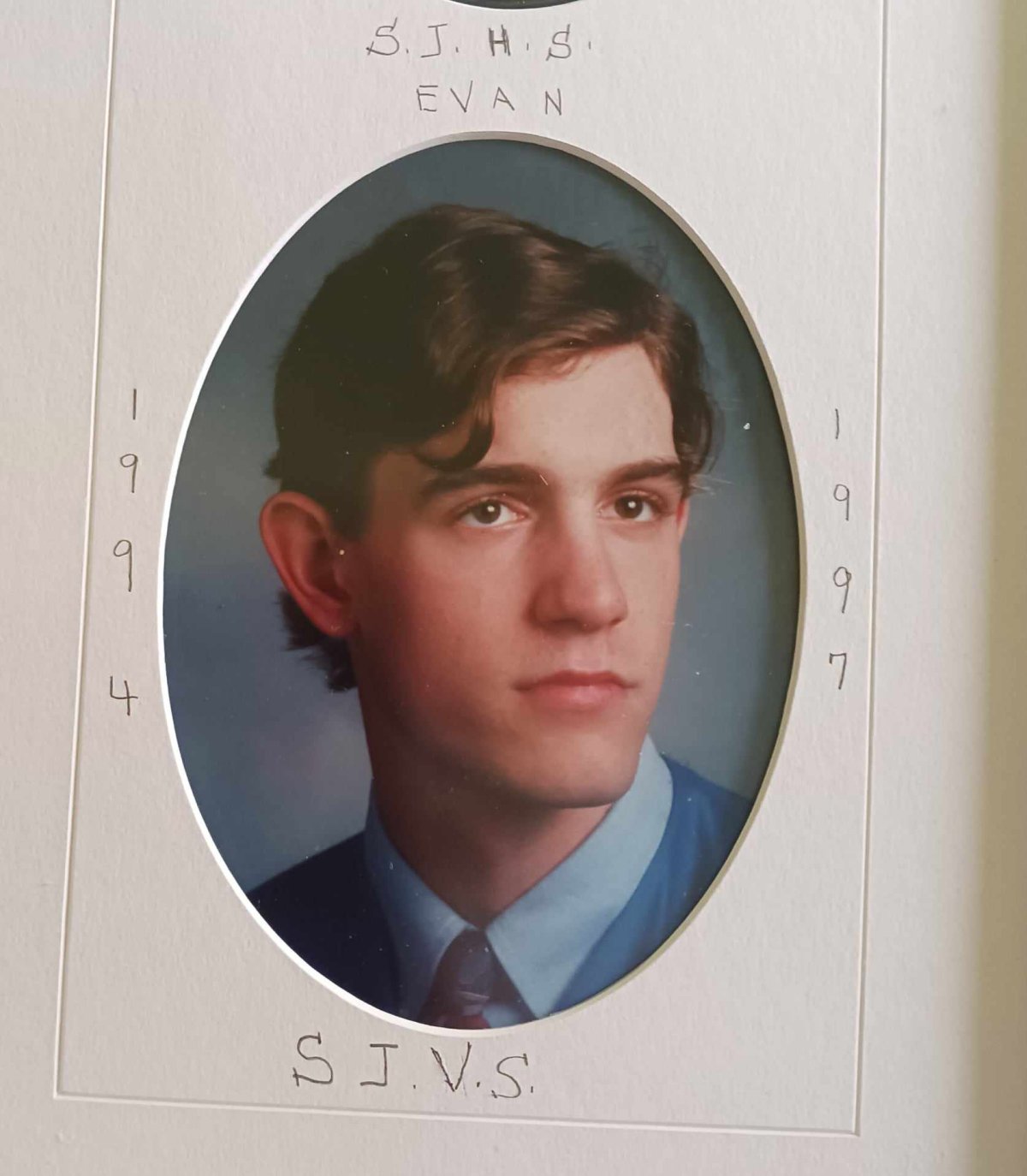As Heather McArthur’s son, Evan, was being treated in hospital for severe burns, his main concern was for his friends at the Saint John encampment where the devastating fire broke out.

“The first thing that Evan said to me was, ‘Did they get out safe?’” she said.
“He said, ‘I couldn’t put the fire out. I couldn’t find him.’ And I told him, ‘The fire is out now, and as far as I know, everybody’s safe, so it’s time to rest.’”
Evan was then airlifted to hospital in Halifax, where he later died.
The fire broke out Saturday at the encampment under the viaduct near Paradise Row in Saint John. Evan, who was 44, suffered severe burns and succumbed to his injuries the next day.

Based on the short conversation she had with her son, along with police and fire personnel, McArthur believes Evan was trying to save people that day.
“We told him over and over again that he was loved, and he was dying a hero,” McArthur said. “Those were the last words my son heard.”
The cause of the fire remains under investigation.
‘He’s free now’
McArthur remembers her son as having a “brilliant mind” with a photographic memory.
“He could remember a day that you had long forgotten, or an event,” she said, adding that he “gave good hugs.”
But he also struggled with addiction. When he drank alcohol, he became “two different people.”
“He was warm and friendly when he wasn’t under the influence of alcohol,” McArthur said.
Evan began drinking when he was young and curious, but it became a bigger problem in his adult years.
He also used harder drugs, though he managed to kick that habit when he was in his 30s. But he couldn’t give up on alcohol, and became estranged from his family for about 15 years.
McArthur said Evan liked his solitude: he knew his drinking was a problem, and he wanted to be alone when he did it.
Evan, who was unhoused, lived in a makeshift hut in the Millidgeville area, and was visiting friends in the encampment when the fire broke out. McArthur saw his home for the first time after he died.
“His bed was made, the utensils were clean and put out, pictures were on the wall,” she said.
“He had a bedroom, a sitting room, and a kitchen, and he called it home. He said it was peaceful, it kept him calm, and he appreciated being alone.”
Evan had only recently reconnected with his loved ones when the fire took his life.
McArthur said her son described himself as a “trapaholic.” He wanted to quit drinking, but he just couldn’t.
“My son only wanted one thing: he wanted to get off that wheel. He wanted to find a way out of being a trapaholic,” she said.
“He’s free now, so he did it. It cost him his life, but he did it.”
‘I can feel the anger in the background’
McArthur said this is “a bigger story than Evan.” She visited the encampment after his death and was shocked by the living conditions there.
“It was horrific. Nobody could live like that, even without the fire,” she said.
“The only thing that could come out of living in those conditions … would be problems, and that’s exactly what occurred.”
McArthur said she is focused on her grief now, and won’t allow herself to be angry. She is still waiting for her son’s ashes to be returned from Halifax so she can scatter them.
But she said something needs to be done about the ongoing housing crisis.
“I can feel the anger in the background, but I’m not going there because this is my time to grieve, but I am ready to rage,” she said.
“This community can’t come together to formulate a plan that will work to give these homeless people hope.
“We’re not on the same page as a community, and it takes a community to work together, in unison, to solve this problem. It’s going to take a long time. And I will be an advocate, but I just need to be allowed to get my son home first.”

Jeff Karabanow, a professor at Dalhousie University and a co-director of Dalhousie’s social work community clinic, said the focus has traditionally been on short-term Band-Aid solutions, like emergency shelters.
“(They) may provide that kind of shelter from the storm, but they really don’t provide any stability or long-term intervention for people,” he said.
He said there are many reasons why a person wouldn’t want to stay in a shelter — something McArthur’s son himself wasn’t comfortable doing.
But Karabanow explained the ideal model would keep short-term solutions like shelters, while also adding an individual-centred approach to figure out how to move people into affordable, safe housing, and keeping them there.
“Living out in encampments, living out rough, isn’t safe,” he said. “Being homeless is dangerous and violent, period. We definitely need dignified, trauma-informed, compassionate service delivery systems.”
Meanwhile, as McArthur continues to navigate her grief, she’s just glad that her son is finally at peace.
“The one thing I’m grateful for, through all of this, is that he’s free, free of his demons,” she said.
“When he died, he accomplished, in my eyes, what he set out to do … he was a hero.”







Comments